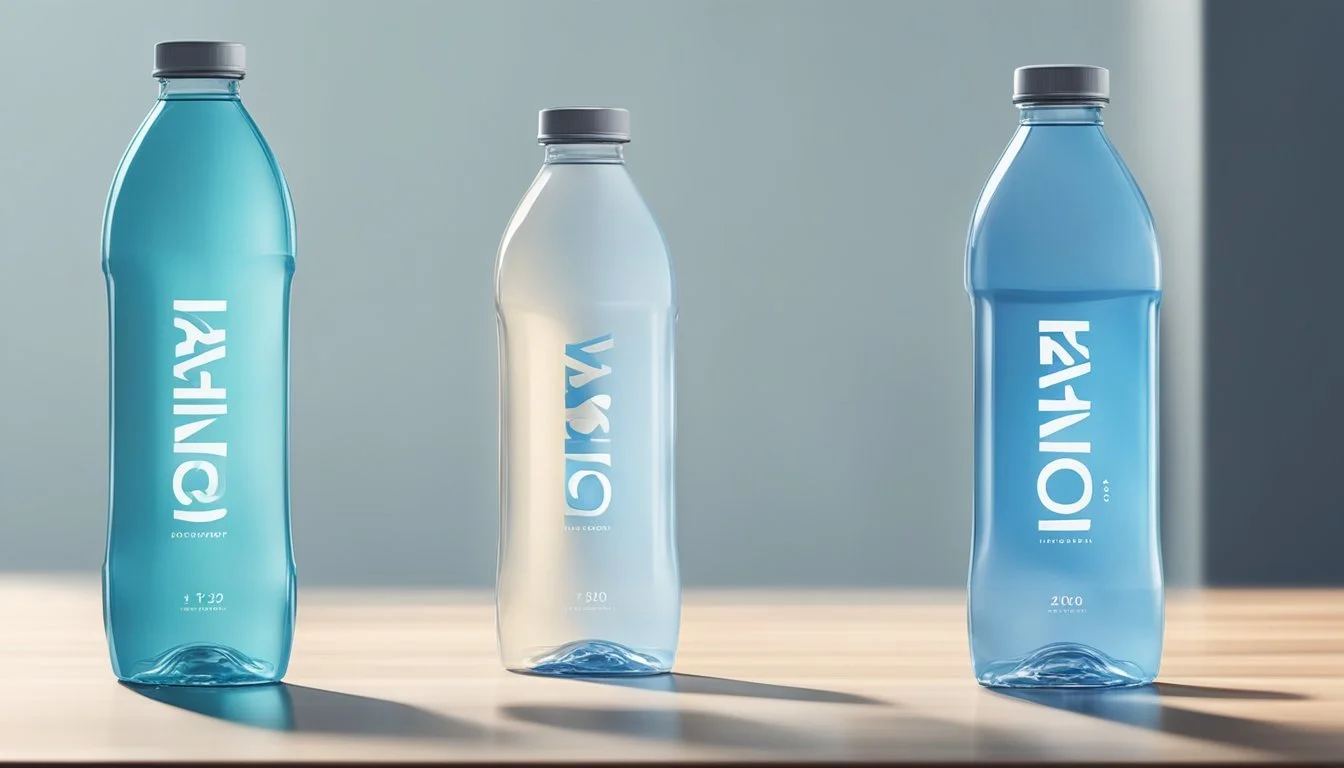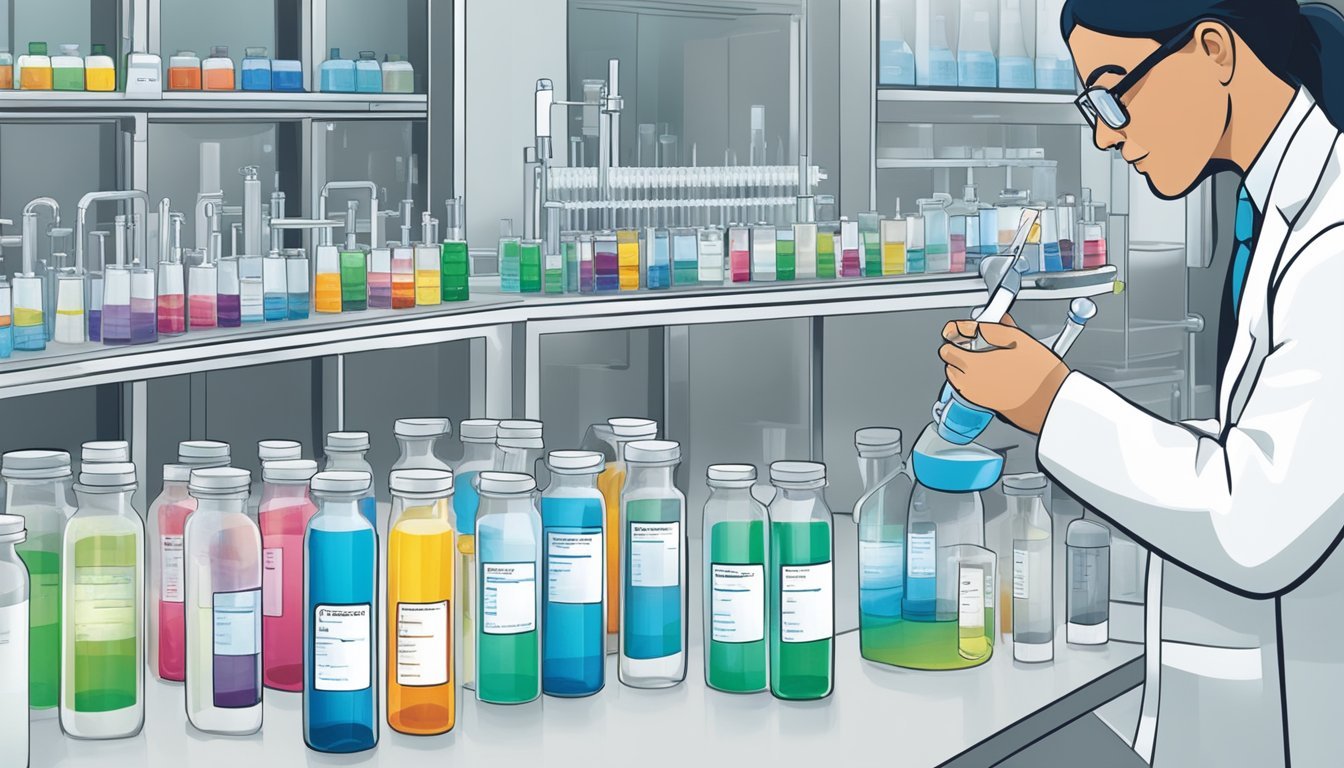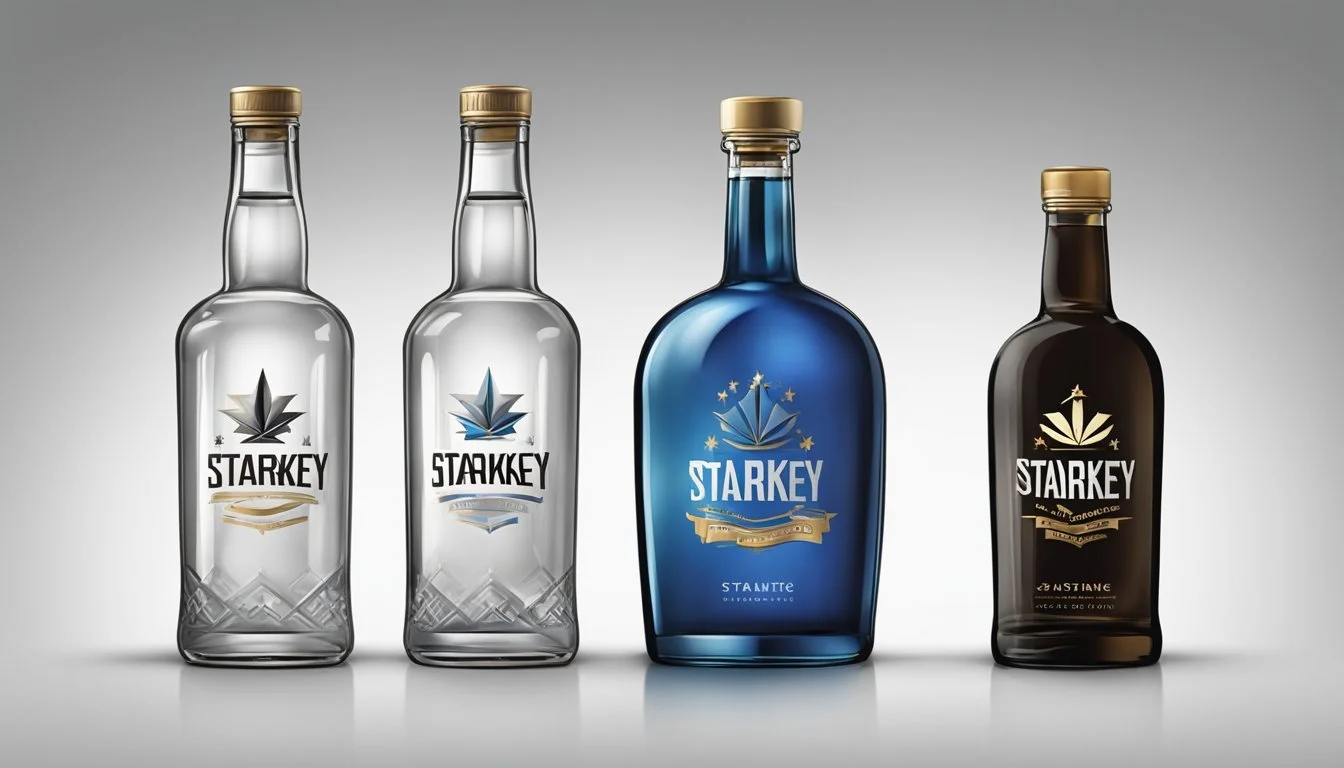Starkey vs. Defy
Which Bottled Water is Better for You?
Water is essential to life, and choosing the right bottled water can make a significant difference in both taste and health. Starkey and Defy are two prominent bottled water brands that stand out for their unique qualities and benefits. Starkey is known for sourcing its water from a geothermal spring in the Idaho mountains, providing a rich mineral content that many find refreshing.
Defy, on the other hand, positions itself as a premium alkaline water brand, targeting those who are health-conscious and seek the benefits of higher pH levels. Given its focus on athletic performance and recovery, Defy often appeals to a different segment of the market compared to Starkey. When comparing Starkey and Defy, their distinct sources and health benefits cater to varied consumer preferences, making each brand better suited to different user needs.
For those who prioritize natural mineral content and spring water purity, Starkey is an excellent choice. Meanwhile, if the benefits of alkaline water and enhanced hydration are more appealing, Defy might be the better option. This comparison will help consumers make an informed decision based on their specific needs and preferences.
Assessing Water Purity
Examining the purity of Starkey and Defy bottled waters involves understanding their filtration and purification processes, as well as the common contaminants that can affect water safety. Each brand employs different methods to ensure their water meets high standards.
Filtration and Purification Processes
Starkey uses a geothermal filtration process. This involves naturally cycling the water through layers of volcanic rock, which helps remove impurities. This method emphasizes natural filtration, ensuring the water retains its mineral content while purifying it effectively.
In contrast, Defy focuses on multiple stages of purification. This includes reverse osmosis, ultraviolet light treatment, and ozonation. Reverse osmosis forces water through a semi-permeable membrane that removes contaminants and dissolved solids. UV light and ozonation are used to eliminate microbiological contaminants, ensuring the water is microbiologically safe.
Both brands aim to provide high-purity water but through different techniques. Starkey's natural filtration may appeal to those who prefer minimal processing. Meanwhile, Defy's multi-step purification promises a highly controlled reduction of contaminants.
Common Contaminants and Safety
Water purity is often judged by the absence of common contaminants such as bacteria, lead, arsenic, and nitrates. The Environmental Protection Agency (EPA) sets standards for allowable levels of these contaminants in drinking water.
Starkey’s geothermal process is effective but may not always remove certain chemical contaminants completely. Regular testing ensures compliance with safety standards. Starkey provides mineral-rich water, but it is essential that any trace contaminants remain within safe limits.
Defy's extensive purification process targets a broader range of contaminants. The use of reverse osmosis, UV light, and ozonation means that the water undergoes multiple stages of rigorous cleansing, ensuring minimal risk from chemical or biological contaminants.
Assessing the safety of bottled water involves comparing these purification methods and understanding which contaminants are efficiently removed. Both Starkey and Defy meet EPA standards, making them safe options, but their differing processes offer unique benefits.
Sourcing of Water
Starkey and Defy have distinct approaches to sourcing their water, significantly influencing their taste and mineral content. Analyzing their water sources provides insight into the qualities each brand offers.
Natural Springs and Aquifers
Starkey sources its water from a geothermal spring in Idaho. This natural source is known for its purity and mineral-rich profile, giving Starkey a distinct taste.
In contrast, Defy relies on aquifers, tapping groundwater stored beneath the earth’s surface. The water passes through soil and rock layers, naturally filtering out impurities.
Groundwater vs. Surface Water
The primary distinction between Starkey and Defy's water sources lies in their origin. Starkey's surface water from geothermal springs is accessible and boasts high mineral content.
Defy's groundwater, drawn from aquifers, tends to be more protected from surface contaminants, offering a different purity level, influenced by the types of rocks and soil it passes through. This affects its taste and mineral content differently from surface-sourced water.
Taste Profile Comparison
The taste profile of bottled water involves several factors, including the water source and purification process. Insights from water sommeliers further illuminate the distinct characteristics of each brand.
Factors Affecting Water Taste
Water taste is influenced by its mineral content, pH level, and source. Starkey sources its water from a geothermal spring, contributing to its smooth finish and slightly alkaline pH, enhancing its crisp flavor.
In contrast, Defy utilizes advanced filtration for a clean taste but sometimes lacks the rich mineral undertones that Starkey offers.
Both brands emphasize purity but capture different taste profiles due to their unique processing methods. Starkey's artisanal approach often results in a richer, more nuanced taste while Defy's controlled purification ensures consistency and reliability.
Water Sommelier Insights
Water sommeliers often describe Starkey as having a complexity that appeals to drinkers seeking a crisp, artisanal experience. The slightly alkaline nature of Starkey contributes to its smooth finish, making it a favorite among enthusiasts.
Defy, favored for its clean taste and refreshing profile, is preferred by those who enjoy a neutral palate. The brand's meticulous filtration and emphasis on purity lend it a crisp, straightforward flavor without any aftertaste.
These distinct profiles highlight the varied experiences bottled water can offer, depending on individual taste preferences and discerning palettes.
Health and Hydration
Starkey and Defy bottled waters differ in their electrolyte and mineral content as well as their pH levels and alkalinity. The following sections explore these factors to help determine which option might be healthier.
Electrolytes and Mineral Content
Electrolytes such as sodium, potassium, and magnesium play a crucial role in maintaining hydration and muscle function. Starkey Water is known for its mineral-rich content, derived from geothermal springs. This includes significant amounts of calcium and sodium, which can benefit individuals who need to replenish minerals lost during exercise.
Defy Water, on the other hand, boasts a unique blend of electrolytes aimed at optimal hydration. Its electrolyte content is balanced to suit everyday hydration needs without being too overwhelming. Defy generally focuses on providing a clean, crisp taste without a heavy mineral presence. This makes it a favored option for those who prefer a lighter mineral load in their bottled water.
PH Levels and Alkalinity
The pH level of water measures its acidity or alkalinity. Alkaline water is often marketed for its potential health benefits, such as neutralizing acidity in the body. Starkey Water has a pH level generally ranging around 7.7 to 8.1, placing it in the lower end of the alkaline water spectrum.
Defy Water is distinguished by its higher pH level, often around 9.5, making it a more potent option for those seeking highly alkaline water. This higher pH is claimed to help improve hydration efficiency and balance the body's pH levels more effectively. Consumers inclined towards the benefits of alkaline water may find Defy a preferable choice.
Environmental Impact
The environmental impact of bottled water is a major concern. This section examines the eco-friendly packaging and practices of Starkey and Defy, as well as their adherence to regulations and corporate responsibility.
Eco-Friendly Packaging and Practices
Starkey focuses on artisanal water, often attracting health-conscious consumers. They have made strides in using recyclable materials for their packaging. Their commitment to sustainability includes reducing plastic usage and emphasizing renewable resources. Convenience to the consumer is addressed by maintaining lightweight bottles that still ensure high durability.
Defy meanwhile emphasizes environmentally-friendly packaging. They utilize biodegradable materials and offer incentives for returning used bottles. Their commitment to zero-waste practices ensures all their packaging materials can re-enter the production cycle. They also engage in initiatives to protect water sources, which underlines their commitment to sustainability.
Regulations and Corporate Responsibility
The FDA oversees bottled water companies in the USA, ensuring products meet safety standards. Both Starkey and Defy comply with FDA regulations.
Starkey actively participates in environmental protection programs, aligning with corporate social responsibility goals. They ensure that their bottling processes minimize CO2 emissions and conserve natural water sources.
Defy takes its corporate responsibility seriously by engaging in community outreach and educational programs on sustainability. They strive for transparency in their operations, providing detailed environmental impact reports. Their efforts in adhering to regulatory standards set by both the FDA and local environmental agencies highlight their commitment to environmental stewardship.
Brand Reputation and Consumer Perception
Starkey and Defy are prominent names in the bottled water industry, each with distinct market positioning and consumer perceptions.
Market Presence and Recognition
Starkey has established a strong presence in the premium bottled water market. It's known for its naturally sourced, mineral-rich water, appealing to health-conscious consumers. Starkey Water is often associated with high quality and purity, which strengthens its market position and consumer trust.
Defy, while newer, makes a significant impact with its innovative approach. It aims to disrupt the traditional bottled water market by offering functional benefits, such as added electrolytes and enhanced hydration. This differentiation helps Defy carve out a unique niche, appealing primarily to active and fitness-focused individuals.
Premium and Value Brands
Starkey is firmly positioned as a premium brand. Its branding emphasizes natural sourcing, high mineral content, and superior purity. This image attracts consumers willing to pay a higher price for perceived quality and health benefits. Starkey's reputation is bolstered by positive consumer reviews and endorsements, further enhancing its premium status.
Defy positions itself slightly differently, focusing on value and functionality. While it maintains a premium image, Defy targets consumers looking for added benefits from their bottled water. The use of electrolytes and other enhancements caters to a demographic that values both performance and cost-effectiveness.
By comparing these aspects, potential buyers can discern which brand aligns better with their personal needs and preferences in the competitive bottled water market.
Cost and Convenience Factors
When choosing between Starkey and Defy bottled water brands, factors such as availability and price point play crucial roles in the decision-making process. These elements can significantly affect which option is more viable for different consumer needs.
Availability in Grocery and Convenience Stores
Both Starkey and Defy bottled waters are widely available in the United States. Starkey is often found in major grocery stores, such as Whole Foods and Safeway, making it relatively easy to purchase during regular grocery shopping trips. These stores frequently stock Starkey in various sizes, catering to different consumer needs.
Defy, on the other hand, has a notable presence in both grocery and convenience stores. You can commonly find Defy at stores like Walmart and convenience chains like 7-Eleven. This widespread availability makes it a convenient choice for on-the-go hydration, especially for consumers who prefer quick stops at convenience stores.
Price Point Comparison
Starkey bottled water tends to be positioned as a premium product, reflecting in its price. A typical 12-pack of Starkey 16.9 oz bottles ranges from $15 to $20. This higher cost may be attributed to its marketing and brand positioning as a high-quality, natural spring water.
Defy offers a more budget-friendly option. A similar 12-pack of Defy 16.9 oz bottles generally costs between $8 and $12. This competitive pricing makes Defy a more economical choice for those looking to save on their bottled water purchases without compromising convenience.
These price differences highlight how each brand targets different market segments, catering to varying preferences and budgets.
More About Starkey
Icelandic Glacial vs Starkey: Which Bottled Water is Better?
Mountain Valley Spring Water vs Starkey: Which Bottled Water is Better?
Starkey vs Kirkland Signature: Which Bottled Water is Better?
Starkey vs Richard's Rainwater: Which Bottled Water is Better?
Starkey vs Whole Foods Italian Still Mineral water: Which Bottled Water is Better?






